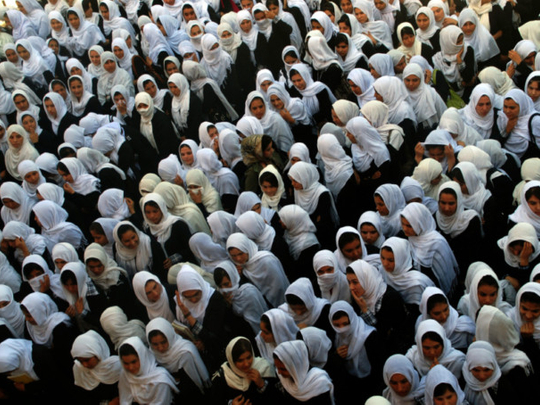
Islamabad: Pakistani police have arrested several people in connection with the Taliban’s shooting of Malala Yousufzai, a 14-year-old education activist who was critically injured, but militant commanders in northwestern Pakistan reiterated their intention to kill the schoolgirl or her father.
Malala remained on a ventilator in hospital on Saturday, as people across Pakistan and neighbouring Afghanistan and India prayed for her recovery.
The shooting of the teenager has been denounced worldwide and by the Pakistani authorities, who have offered a reward of more than $100,000 for the capture of her attackers.
With the Pakistani parliament, army and the nation as a whole reacting strongly to the assassination attempt on Malala, the national outcry has brought into focus the need for Pakistan to deal decisively with the threats posed by violent extremism.
Prime Minister Raja Pervez Ashraf, who visited Malala on Friday, paid tribute to her and two friends who were also wounded when a gunman boarded their school bus on Tuesday and opened fire. “It was not a crime against an individual but a crime against humanity and an attack on our national and social values,” he told reporters.
Police have been questioning people in the town of Mingora, in the Swat Valley, where the shooting took place.
Mingora police chief Afzal Khan Afridi said arrests had been made, but he declined to give any details about the number of people detained or what role they’re suspected of having in the shooting.
Gunmen not arrested
Interior Minister Rehman Malik told reporters Friday that the two gunmen who staged the attack were not among those arrested, but he said investigators had identified the masterminds of the shooting and efforts were under way to capture all those involved.
Taliban spokesman Sirajuddin Ahmad said Yousufzai’s family had been warned three times - the most recent warning coming last week - before the decision was made to kill her.
Ahmad said local Taliban leader Maulana Fazlullah and his deputies selected three attackers, including two trained sharpshooters, who carefully studied the girl’s route home from school.
Even before the Taliban took over the Swat Valley, Fazlullah’s radio broadcasts spread fear among residents in the area. The group first started to exert its influence in 2007 and quickly extended its reach to much of the valley by the next year. They set about imposing their will on residents by forcing men to grow beards, preventing women from going to the market and blowing up many schools - the majority for girls.
Time to get rid of extremism
Analysts say the current national consensus against extremism should be catalyst for intensifying efforts by the government, political parties, the civil society and the military to rid the country of extremism and terrorism. Such consensus was reached in 1990, when both houses of the Parliament unanimously passed resolutions for military operation in Swat, after which the army went into action and successfully wrested control of the valley form the Taliban.
The seven federally administered tribal districts of the northwestern Khyber Pakthunkhwa have witnessed intense battles between the security forces and the Taliban for about a decade now in a seemingly unstoppable conflict. Authorities in Khyber Pakthunkhwa as well as the federal government continue to reiterate the resolve to root out extremism, but the overall security environment appears to be getting murkier with the unending cycle of targeted killings in the country’s biggest city of Karachi, the unrest in insurgency-hit Balochistan province and recurring terrorist attacks throughout the country.
“The military needs to analyze why its efforts against the Taliban have failed and what is need next in terms of military action and where,” said one of the biggest national dailies, Dawn, in an editorial comment.
Security enhanced in school
As the school Yousufzai attended reopened, children and teachers tried to come to terms with what happened to their star pupil, shot in a bus roughly 300 meters from her classrooms. Police were deployed around the school, but many students still stayed away.
“We have decided to open the school after two days to overcome the fear among our students that gripped them due to the attack,” said one of the teachers, Zafar Ali Khan.
The school is owned and operated by the teenage activist’s father, who takes great pride in his daughter’s accomplishments and is a champion of education for girls.
-WITH INPUTS FROM MOHSIN ALI, CORRESPONDENT












